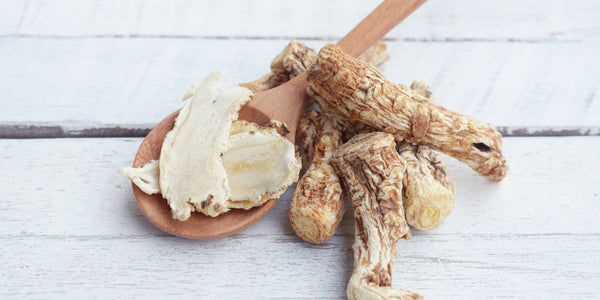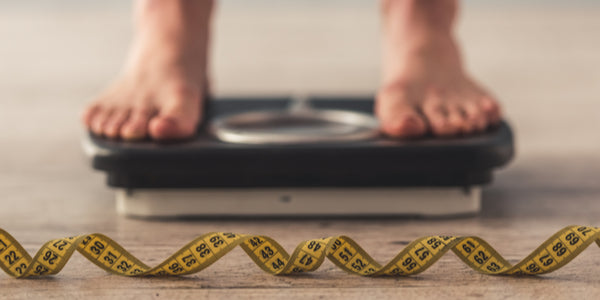
Menopause describes the changes women go through right before or after menstruation stops, thus ending her reproductive period. It is a normal condition all women experience as they age and starts to begin as early as 40.
Common symptoms of menopause include hot flashes, insomnia, mood swings, fatigue, depression, headaches, and mood swings. With menopause being an inevitable part of aging, women cannot avoid it. However, these symptoms can be treated and cared for.
Hormone therapy is oftentimes recommended to replenish estrogen, a declining hormone during menopause and component used to subside symptoms. Alternative treatments, such as "female ginseng," is also claimed to have estrogen effects and manage menopause.
Female Ginseng and Menopause
Dong quai is the dried root of Angelica sinensis and commonly known as "female ginseng." The herb dates back to traditional Chinese medicine thousands of years ago. It may be referred to as Chinese Angelica and Angelica China, too.
Dong quai has shown to promote blood circulation and nourish the blood. "Female ginseng" also may benefit a number of reproductive problems related to menstrual and menopausal symptoms.
Thanks to antispasmodic properties, dong quai is suggested to relieve premenstrual syndrome symptoms such as cramps. Other uses of female ginseng for women include stabilizing irregular menstrual cycles and infrequent periods. These particularly serves true in women who terminate birth control pills.
Researchers are not sure whether dong quai acts like estrogen or blocks estrogen in the body. However, some women turn to dong quai to relieve menopausal symptoms such as hot flashes.
Additional Uses for "Female Ginseng"
WebMD further details ginseng may be useful in managing other health and medical conditions. What's more, it can benefit both men and women. Potential uses include:
• Erectile dysfunction and premature ejaculation in men
• Heart disease, specifically reducing chest pain and improving heart health
• Reduce high blood pressure in people with COPD and pulmonary hypertension
• Stroke
• Constipation
• Allergies
• Joint aches and pains
• Migraine headache
Dosing Recommendations and Safety of Dong Quai
There is no established safe and recommended dosage at this time, especially since several forms exist and dosages vary widely.
But according to drugs.com, crude root extract ranges from three to 15 grams per day. In combination, preparations of 75 to 500 milligrams may be taken up to six times daily. In a clinical trial investigating use in menopause, 4.5 grams of dong quai was administered daily for 24 weeks safely.
Despite general safeness with its use, there are a few instances in which dong quai should be avoided. These include pregnant and lactating women and individuals taking warfarin, heparin, and other antiplatelet therapies.
Other Natural Remedies for Menopausal Symptoms
Dong quai is one of the most common. Other natural remedies for hot flashes and menopausal symptoms include:
• Black cohosh: Black cohosh has been promoted to help women's conditions regarding menstrual cramps, muscle pain, indigestion, and hot flashes. A study suggests supplementing with black cohosh reduces hot flash severity and quantity and improves quality of life.
• Red clover: Despite inconclusive data, women claim red clover helps reduce hot flashes. There is also little to no serious side effects or health problems when using red clover.
• Ginseng: Though not to be confused with "female ginseng," another type of ginseng is claimed to treat menopausal symptoms. While it not proven to help hot flashes, research shows Panax or "red" ginseng may improve mood and overall wellbeing.
• Kava: Research shows kava may decrease anxiety, though it likely does not decrease hot flashes. However, the Food and Drug Administration (FDA) warns its intake related to possible liver damage.
• Evening primrose oil: Evening primrose oil is promoted to relieve hot flashes, though research is limited. The botanical can be severely harmful and cause inflammation, nausea, and diarrhea. It may inhibit blood clotting and induce seizures in people taking antipsychotics, too.
With any herbal medicine and alternative therapy, be sure to consult with a doctor first. They will help guide the risks versus benefits, along with addressing any drug interactions and proper dosing recommendations.
Also tread cautiously when choosing a product, as they are not regulated as prescription drugs. The quantity and quality of supplements can vary from product-to-product. Research reputable suppliers to ensure the utmost safety.
But instead of relying on herbal remedies, look to safer, proven techniques. These include lifestyle factors such as diet, exercise, sleep, and stress management:
• Diet: The best diet for menopause eases symptoms and targets insulin resistance, in which insulin has trouble using glucose for energy. Insulin resistance can increase weight gain risk, though controlling carb intake can combat the risk.
A low-glycemic diet assists in weight loss and staves from hot flashes by balancing blood sugar levels. High-protein foods, high-fiber complex carbs, and healthy fats tend to rank low on the glycemic index.
Most aging individuals are at risk for bone loss, senior women especially. Medically known as osteoporosis, weakened bones increase the risk of falls and painful injuries. To combat bone loss, a diet rich in calcium and vitamin D is encouraged with weight-bearing exercises.
• Exercise: Speaking of exercise, regular physical activity is crucial for weight management and improve overall health. Include at least 150 minutes of aerobic exercise weekly, including brisk walking, jogging, dancing, and biking.
Incorporate resistance training at least two to three times a week, too. Strength training protects from muscle and bone loss that often comes with age. It further helps keep the metabolism working efficiently.
• Sleep: Sufficient sleep is important to protect from weight gain and stabilize mood and energy levels. Maintain a cool room temperature to induce sleep cycles and ward off hot flashes and night sweats.
• Stress management: Manage stress to combat mood swings and risks of emotional eating bouts. Try sipping on a glass of hot tea, taking a warm bath, walking in nature, or reading a favorite book. Talking with a close friend or family member can also alleviate stress and improve mood almost instantly.
The links between dong quai, weight loss, and other benefits are slightly unclear. However, a menopausal diet plan is certain. Using a menopause meal delivery service can help ensure nutrient needs are met to lose weight and alleviate symptoms. Not to mention, ease the stress of meal prep!
With bistroMD, achieve goals and beat menopause for the long-term. BistroMD helps menopausal women regain control of their bodies with doctor-designed, dietitian-approved, and chef-prepared meals delivered to doorsteps.
The bistroMD menopause program has been carefully created and focuses on lean proteins and reduces carbohydrates to support hormone regulation. Plans are customized to meet individual needs, though all meals are scientifically-proven to balance nutrition and hormones during menopause.
As a bistroMD program member, gain unlimited and free access to Registered Dietitians. Take advantage of a wealth of health information right at the fingertips, too. Truly, never feel alone during this journey!








